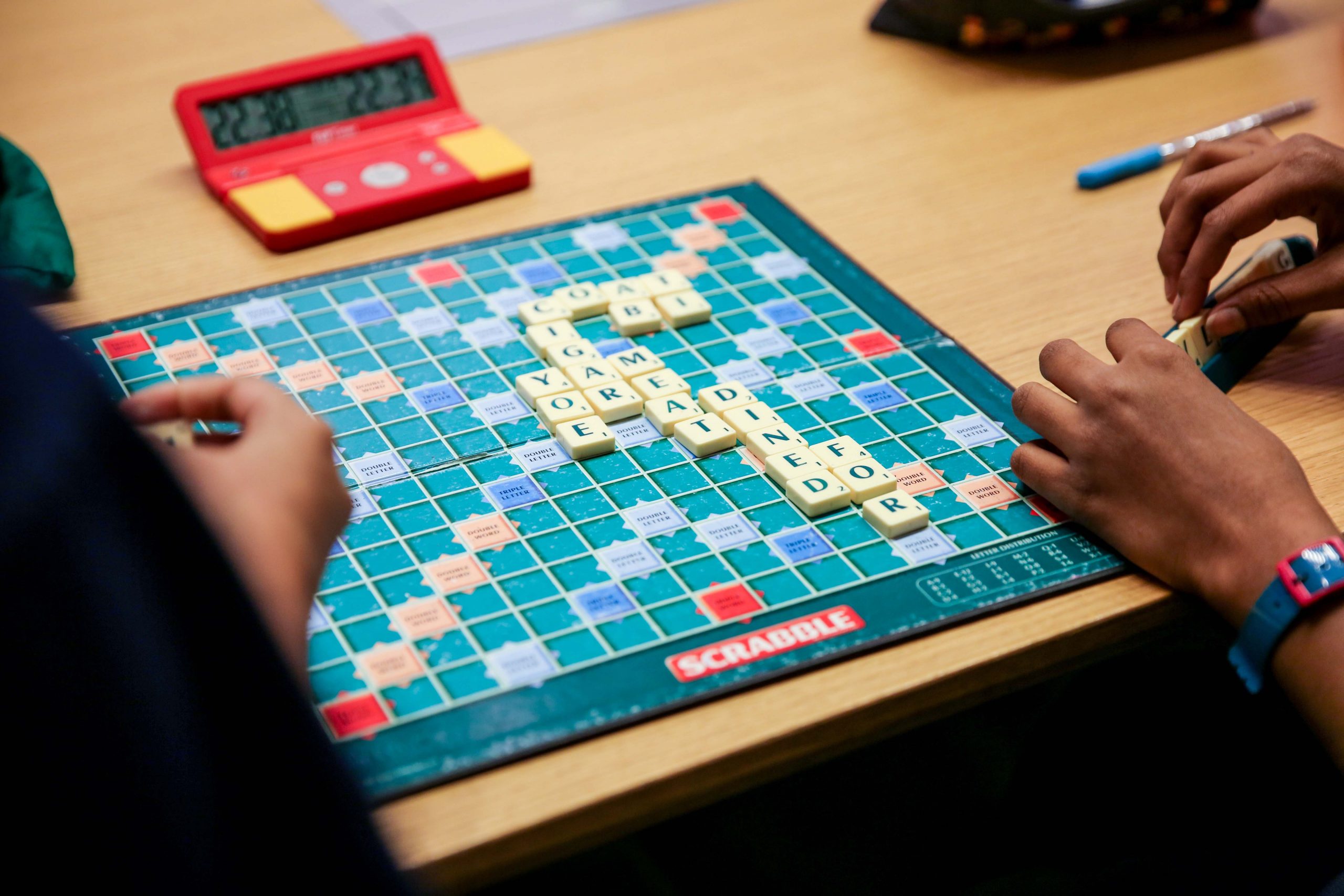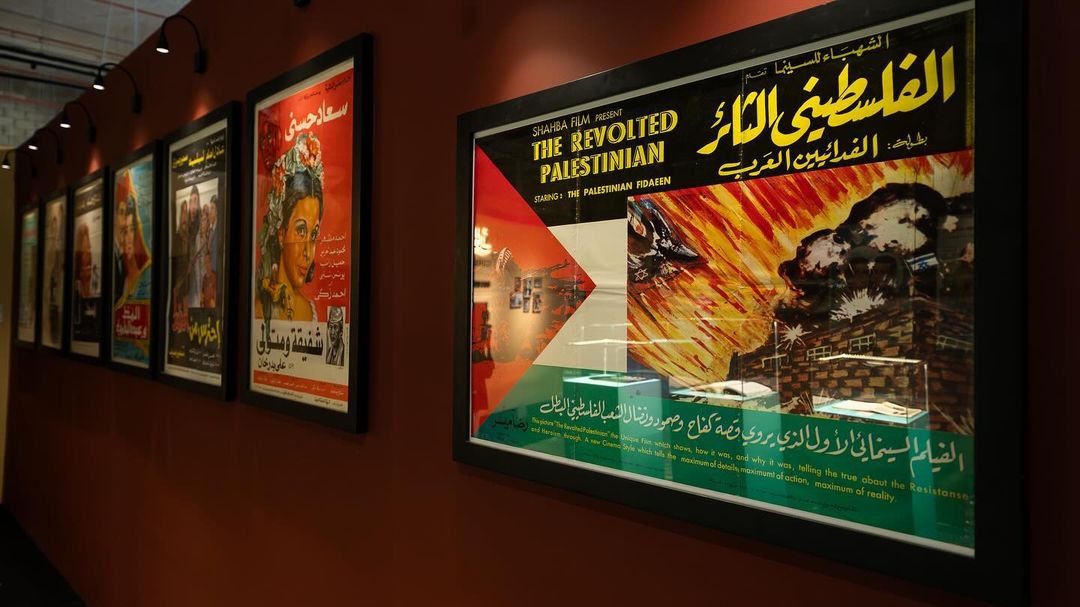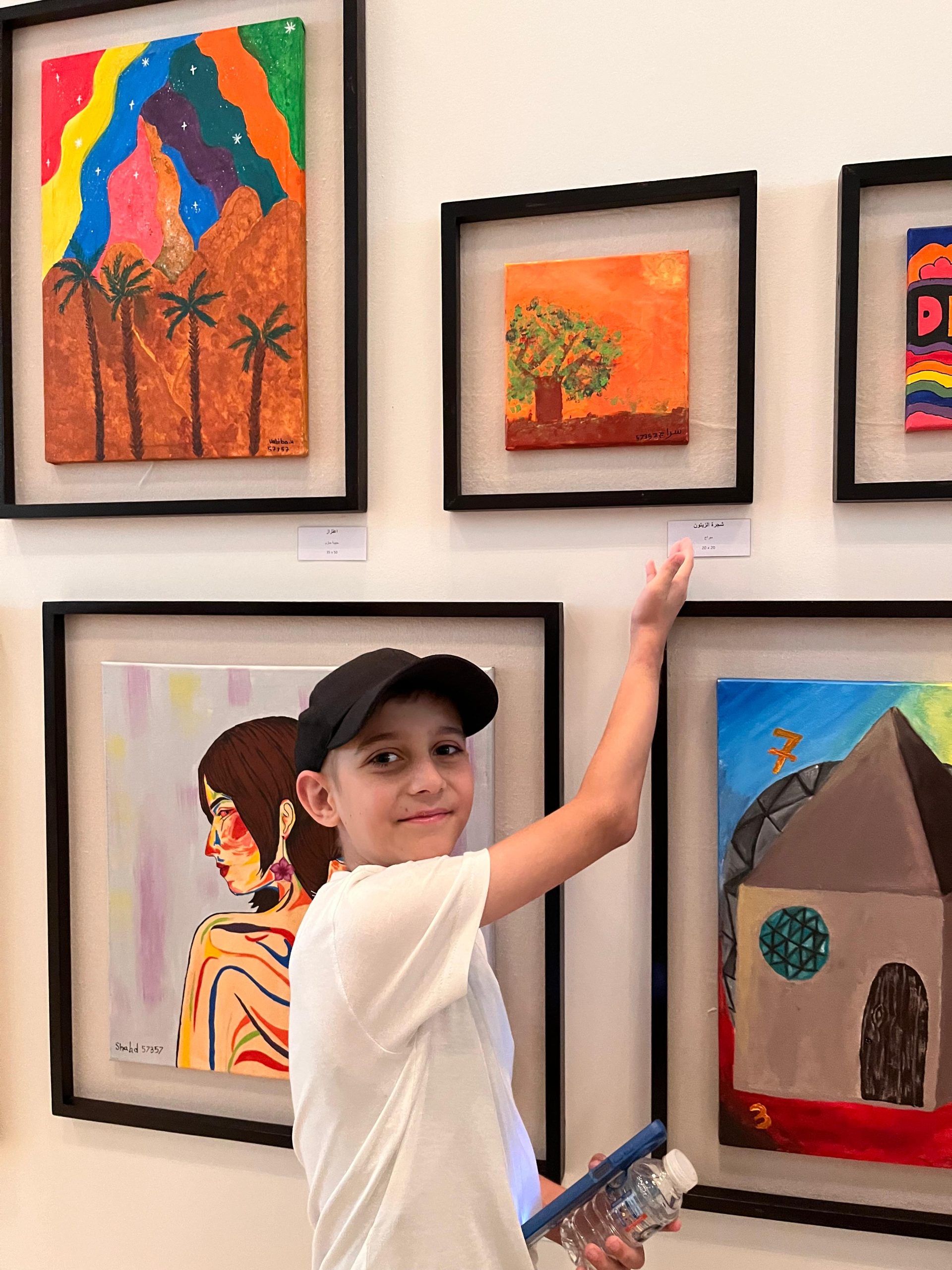
The room goes quiet when they begin to play. Heads bowed down, fingers deftly placing pieces on the board. The only sounds are the rattling of tiles in the bag, and the famed phrase, “Is that a word?”
The game is Scrabble, and the players are nine- to 12-year-old children in Qatar.
In a country that hosted the Asian Games and is gearing up for the 2022 FIFA World Cup, mental games that test and hone educational skills are often less celebrated than more energetic sports such as football.

But for the past few years, the game of competitive Scrabble has begun to thrive in Qatar. The movement is fueled in large part by the efforts of one woman, Judith Britten.
The British expat, who has spent more than 20 years in the Middle East, first came here in 1993 and was one of the founders of the Qatar Scrabble League (QSL). The initiative, which began in 1996, went extinct in a few years, and was revived a decade later.
Speaking to Doha News, Britten explained how the group first came about:
“It was a group of us who decided to start up QSL, a place where we could teach and play Scrabble competitively. At our peak, we had around 100 members in one sitting. We would meet every Friday at McDonald’s, which was closed to customers in the morning, to play.”
Early successes of the group, which attracted a diverse expat following, included Qatar’s first international representation at the Gulf Scrabble Tournament and the World Scrabble Championship, both in 1997.
But the endeavor was short-lived. Bureaucracy, internal politics and Britten’s departure from Doha in 1998 contributed to the demise of the group in the mid-2000s.
New focus
However, in 2008, when Britten returned to Doha for work, a second attempt was made to revive the group, this time with a renewed focus on training children to play Scrabble competitively.
“The focus on the children strongly evolved when we received the invitation for Qatar to send players to the 2009 World Youth Scrabble Championship in (Malaysia) that took place in December…
The adult players whom I tried to encourage to act as mentors to the kids started to not appreciate it because they were only coming just for the fun and entertainment they got out of the game. So there was a divergent focus and as time went on and the kids were going from strength to strength, the adult players started to feel unhappy that the kids were beating them in their games.”
The majority of young scrabble players in Qatar now hail from the Stafford Sri Lankan School Doha (SSLSD). The school, which began a Scrabble club in 2008, currently has more than 100 players.

Speaking to Doha News, 9-year-old Minuki Satharasinghe, one of the SSLSD players, said:
“We meet every Tuesday after school to play, and learn vocab. We get worksheets with words to memorize, and play against our friends. It’s been great. I’ve improved my English, and my math, because Scrabble requires quick mental math to calculate your scores.”
Interschool competitions between SSLSD, the Delhi Public School, MES, the Al Khor International School, the Doha Modern Indian School and The Cambridge School Doha keep the spirit of Scrabble alive in between international competitions.
In addition to having fun, many students said they were happy to be learning life skills, such as efficiency, speed, multi-tasking, time management and quick decision-making.
Competitions
Qatar’s youth representation on an international stage began in 2009 and has continued since.
Last December, 16 children ages nine to 14 years old traveled to Dubai to compete in the World Youth Scrabble Championship.
Two students represented Qatar as part of the official “quota,” while the rest accompanied the team to play and better their skills.
Each player is given 25 minutes to complete the game, with an ideal score of between 250 to 300 points, before moving on to the next. Students are allowed to contest an opponent’s word by looking it up on an online system called Zyzzyva.
Back to back games total some eight hours, and often leave players exhausted.
“It was tiring and much different from our practices. No matter what, the practices that we did here were always fun. In the competition, it’s much more intense. It’s mentally stressful,” said Samuel Fernandes, a 16-year-old Indian expat who played as one of Qatar’s two quota players and placed 104th out of 136 players at the Dubai Championship.
While Britten doesn’t train the children regularly, she is in charge of whipping them into shape for competitions. Training includes mentoring sessions in the evenings and endurance games that last eight hours in one sitting, held over three weekends.
Each player is also tasked with learning all 124 two-letter words that exist in the English language, and the majority of the 1,130 three-letter words.
“It’s hard, but we have donuts,” said Meenakshi Sethupathy, 15, who also participated in the Dubai Championship and placed 52nd.
The 2014 Championships held in Colombo two months ago saw 20 Sri Lankan students from Qatar participate, to much better results.
Minuki won the championship in her age category (under-10s) and placed 52nd overall, while Ushara D’Silva, 12, placing 49th.
Other members of the team included Sahel Infas (9), Amna Cassim (12), Thareefa Ismail (11), and Yunus Ismail (12).
Challenges
While Scrabble continues to be a popular sport among children of Qatar’s South Asian community, there are numerous challenges hindering its growth, Britten said. She continued:
“There is a lack of awareness among the national population. We have no Qataris in our group, now or then. We want to be able to break through this and enable them to join in the game too.”
She added that the hesitation of adult players to play with children, who often surpass them in skill, is also a recurring problem.
“Adults don’t like to be beaten, so they don’t play with the children. But it’s important that children be exposed to adults, so that they get the hang of playing with someone much older than them,” she added.
Some people, unaware that competitive Scrabble is quick-paced, continue to believe in the notion that the game is a long, drawn-out process, and are deterred from playing it.

For now, Britten is looking to reintroduce Scrabble to the adult community, and to incorporate it into sports events around the country. Her goal is to restart the QSL and organize local games open to the public on Qatar’s National Sports Day early next year.
“It’s beautiful to see how much people, especially children, change during the course of the game. You see them not the way they first came. I have had kids who never spoke for a long time, and then in the middle of a game, they’ll randomly say ‘that’s not a word!’ or ‘your score is wrong,’ and the ice is broken. It gives children confidence, allows them to play in a team, and teaches them the value in reading. It’s amazing what it can do,” she said.
For more information on getting involved in Scrabble in Qatar, email Britten at [email protected].
Thoughts?







